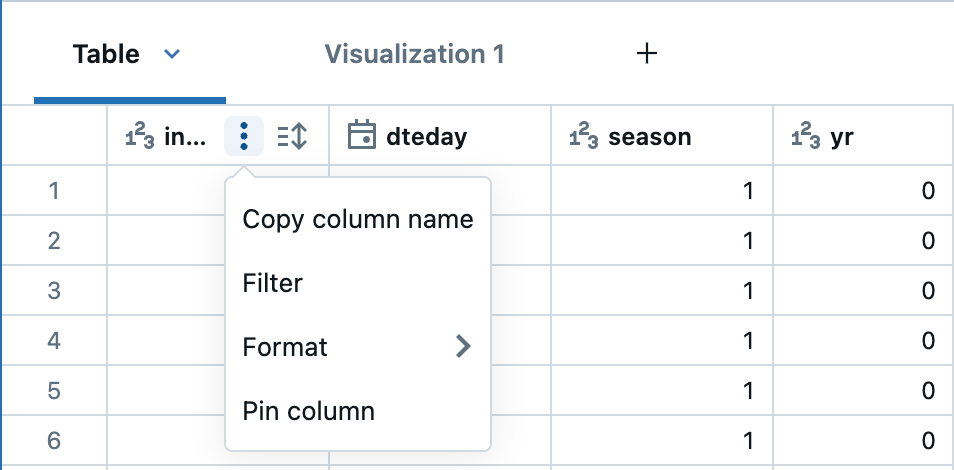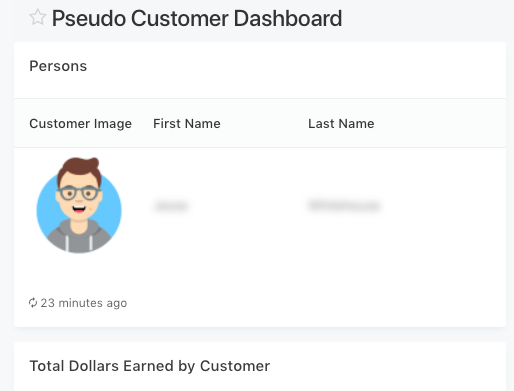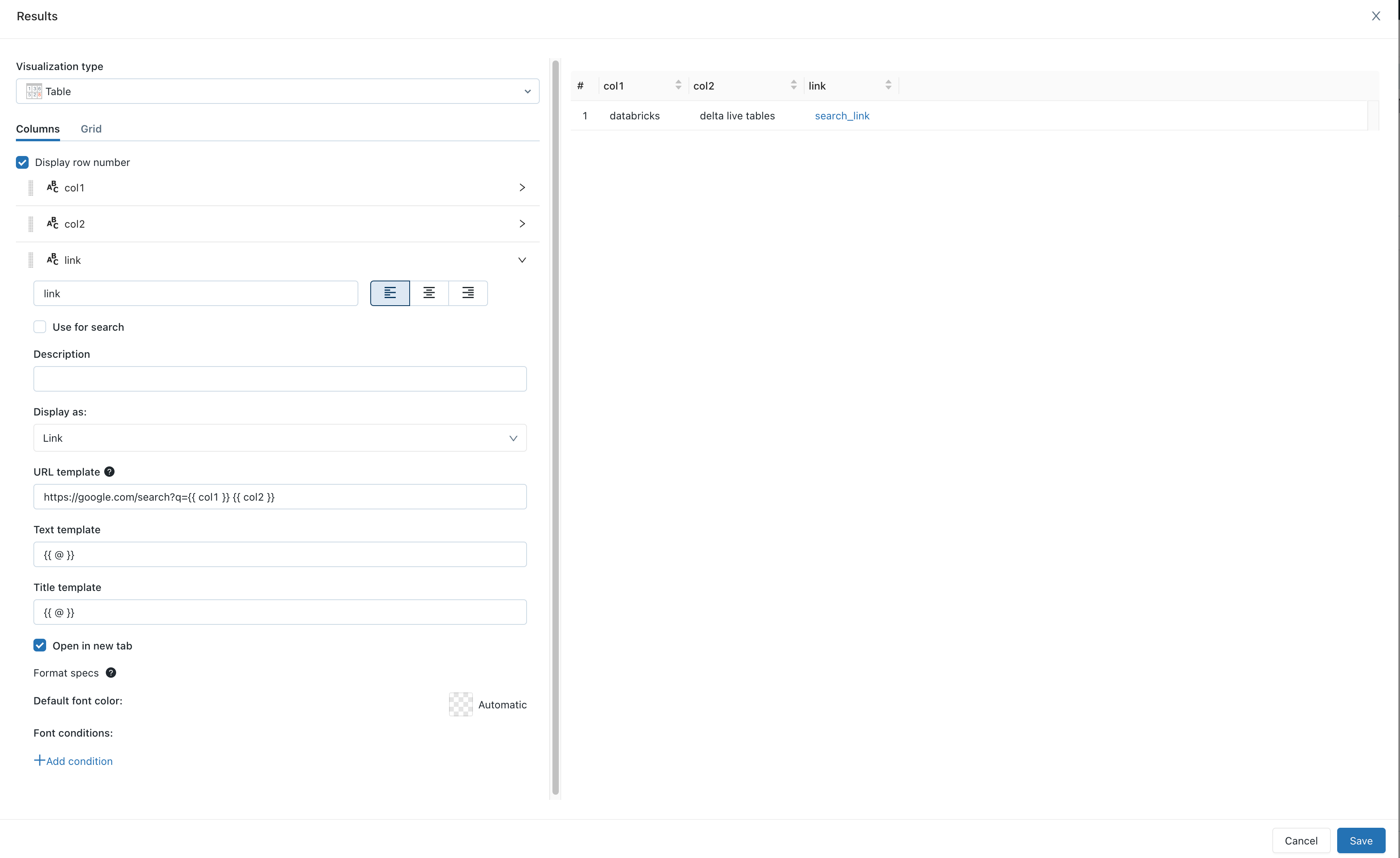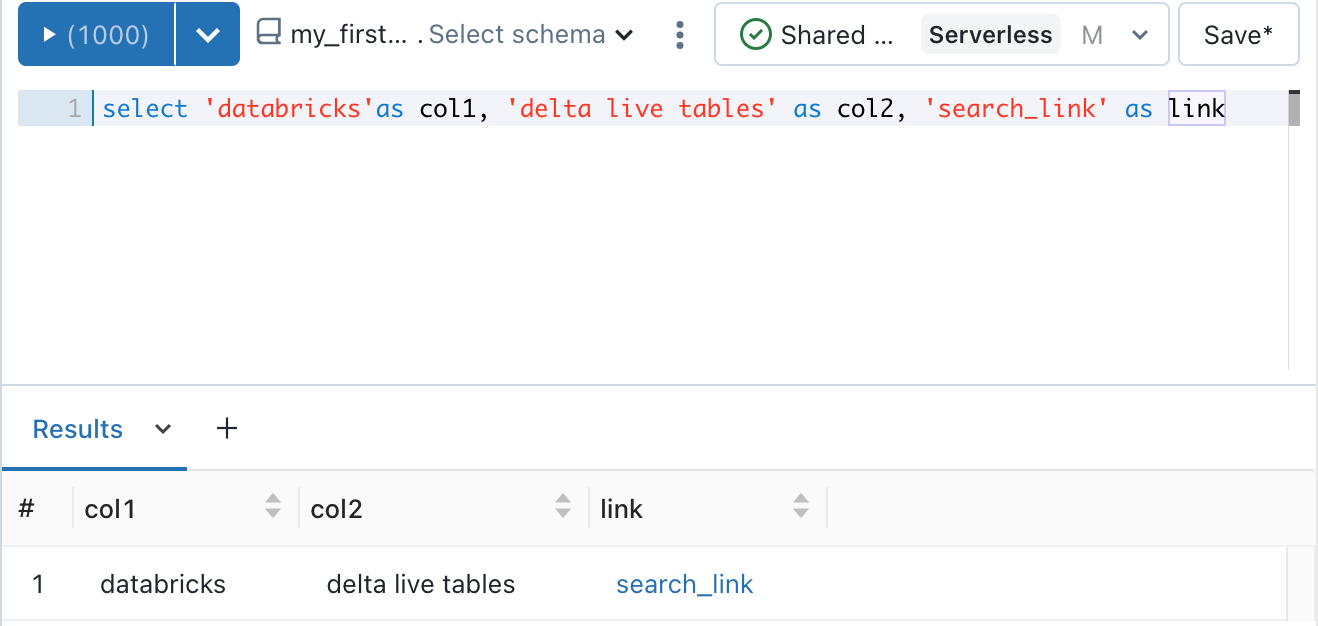Note
Access to this page requires authorization. You can try signing in or changing directories.
Access to this page requires authorization. You can try changing directories.
With Azure Databricks table visualizations you can manually pin, reorder, or hide columns. You can also format the data in a column. This article describes how you can control data presentation in table visualizations.
A table visualization can be manipulated independently of the original cell results table.
You can:
- Reorder columns by dragging them up or down using the
 handle
handle - Hide columns by toggling the
 icon
icon - Pin, filter, and format column data using the kebab menu
on the column.
This page describes the configuration options available when creating visualizations in the SQL editor or a notebook. To learn how to work with visualizations in AI/BI dashboards, see Dashboard visualizations.
Column settings
Use the kebab menu on the column header to show optional column settings.

Click Copy column name to copy the name of the column to you clipboard.
Click Filter to define add a conditional filter to the table.
Click Format to format the data. See Common data types.
You can format some common data types-text, numbers, dates, and Booleans. Azure Databricks also has special support for non-standard column types like images, JSON documents, and links. To display type-specific formatting options, select the type in the Display as field.
Click Pin column to keep the column visible as you scroll right on the table.
Common data types
You can control how data is displayed. For example, you can:
- Display floats out to three decimal places
- Show only the month and year of a date column
- Zero-pad integers
- Prepend or append text to your number fields
Text
The Allow HTML content field has the following behavior:
- Enabled: HTML content is run through an HTML sanitizer and the column is rendered as HTML.
- Disabled: The content is displayed without rendering the HTML.
Numeric and date-time
For reference information on formatting numeric and date and time data types, see:
Special data types
Azure Databricks supports the following special data types: image, JSON, and link.
Image
If a field in your database contains links to images, select Image to display the images inline with your table results. This is especially useful for dashboards. In the following dashboard, the Customer Image field is a link to an image that Azure Databricks displays in-place.

JSON
If your data returns JSON formatted text, select JSON. This lets you collapse and expand elements in a clean format.
Link
To make HTML links from your dashboard clickable, select Link. Three fields appear: URL template, Text template, Title template. These template fields control how an HTML link is rendered. The fields accept mustache-style parameters (double curly braces) for the column names in the table. The mustache parameters support the pipe filter urlEscape, which URL-escapes the value.

The query in the following screenshot generates a result set containing the search URL. If you hover over the link in the result set, you see the URL in the lower left corner. Click the URL in the result set to view the search results in your browser.

Conditionally format column colors
You can configure the font colors for column results to a static color or a range of colors based on comparing the column value to a threshold.
Edit the visualization.
Optionally, set the default font color to a non-default value.
Under Font Conditions, click + Add condition.
Select the column, the threshold, the comparator, and the font color if the comparison succeeds.
The threshold can be a numeric type, string, or date. For the comparison to succeed, the threshold must be the same data type as the column. For example, to colorize results whose values exceed the numeric value
500000, create the threshold> 500000, rather than> 500,000. Numeric types, strings, and dates are supported.Optionally add more conditions.